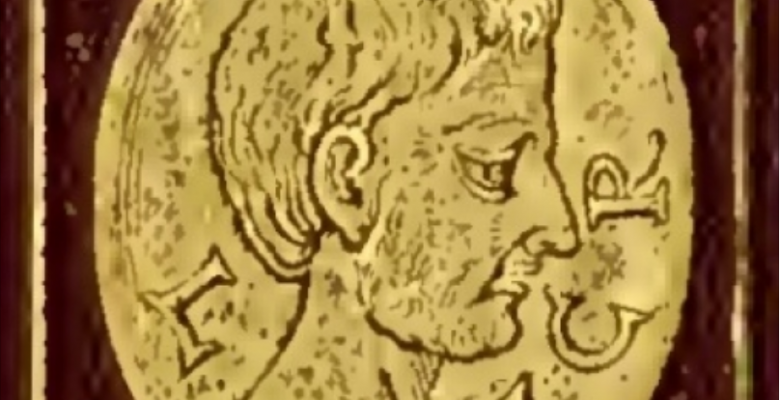Lucretius Today Podcast Episode 141 – The Inscription of Diogenes of Oinoanda – Part 1
Listen to “Episode 141 – Diogenes of Oinoanda – The Inscription (Part 01)” on Spreaker.
Welcome to Episode One Hundred Forty-One of Lucretius Today. This is a podcast dedicated to the poet Lucretius, who wrote “On The Nature of Things,” the only complete presentation of Epicurean philosophy left to us from the ancient world.
I am your host Cassius, and together with our panelists from the EpicureanFriends.com forum, we’ll walk you through the ancient Epicurean texts, and we’ll discuss how Epicurean philosophy can apply to you today. We encourage you to study Epicurus for yourself, and we suggest the best place to start is the book “Epicurus and His Philosophy” by Canadian professor Norman DeWitt. If you find the Epicurean worldview attractive, we invite you to join us in the study of Epicurus at EpicureanFriends.com, where you will find a discussion thread for each of our podcast episodes and many other topics.
At this point in our podcast we have now examined both Lucretius and the major letters of Epicurus, and we will now turn our atttention to one of the other leading advocates of Epicurus in the ancient world: Diogenes of Oinanda. We won’t make any effort to go through all the fragments, but we will look at what Diogenes chose to highlight as the key aspects of the philosophy that both he – and the ancient Epicureans as a whole – thought it most important for the world to know. We will use both the translation by Martin Ferguson Smith, as well as the translation by C. W. Chilton, and we highly recommend that you start your review of the inscription at the excellent site devoted to it from Catalonia which you will find linked in the show notes (https://Enoanda.cat)
Now let’s join Martin reading today’s text:
Fr. 1 Diogenes the Oinoandian and friend of Athens. Epitome on nature.
Fr. 3 [And I wanted to refute those who accuse natural science of being unable to be of any benefit to us.] In this way, [citizens], even though I am not engaging in public affairs, I say these things through the inscription just as if I were taking action, and in an endeavour to prove that what benefits our nature, namely freedom from disturbance, is identical for one and all. And so, having described the second reason for the inscription, I now go on to mention my mission and to explain its character and nature. Having already reached the sunset of my life (being almost on the verge of departure from the world on account of old age), I wanted, before being overtaken by death, to compose a [fine] anthem [to celebrate the] fullness [of pleasure] and so to help now those who are well-constituted. Now, if only one person or two or three or four or five or six or any larger number you choose, sir, provided that it is not very large, were in a bad predicament, I should address them individually and do all in my power to give them the best advice. But, as I have said before, the majority of people suffer from a common disease, as in a plague, with their false notions about things, and their number is increasing (for in mutual emulation they catch the disease from one another, like sheep) moreover, [it is] right to help [also] generations to come (for they too belong to us, though they are still unborn) and, besides, love of humanity prompts us to aid also the foreigners who come here. Now, since the remedies of the inscription reach a larger number of people, I wished to use this stoa to advertise publicly the [medicines] that bring salvation. These medicines we have put [fully] to the test; for we have dispelled the fears [that grip] us without justification, and, as for pains, those that are groundless we have completely excised, while those that are natural we have reduced to an absolute minimum, making their magnitude minute.
Fr. 2 … [observing that most people suffer from false notions about things and do not listen to the body] when it brings important and just [accusations] against the soul, alleging that it is unwarrantably mauled and maltreated by the soul and dragged to things which are not necessary (in fact, the wants of the body are small and easy to obtain — and the soul too can live well by sharing in their enjoyment — while those of the soul are both great and difficult to obtain and, besides being of no benefit to our nature, actually involve dangers). So (to reiterate what I was saying) observing that these people are in this predicament, I bewailed their behaviour and wept over the wasting of their lives, and I considered it the responsibility of a good man to give [benevolent] assistance, to the utmost of one’s ability, to those of them who are well-constituted. [This] is the first reason [for the inscription]. I declare that the [vain] fear of [death and that] of the [gods grip many] of us, [and that] joy [of real value is generated not by theatres] and […and] baths [and perfumes] and ointments, [which we] have left to the masses, [but by natural science…]

